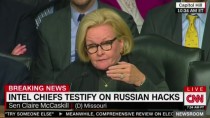Start practicing real politics

“Perception is strong and sight weak. In strategy it is important to see distant things as if they were close and to take a distanced view of close things.”
I found this quote typed on a card in a sweet shop near me called Nesting, where they specialize in selling charming oddities — like quotes typed on a card. It was being sold for a dollar, and so I plunked that down and took the card home.
In politics, the art of perception is to pay attention, deeply, to what the other person might want and where what they want is shared with you. In strategy, artful persons develop a vision of what they want to achieve and perceive how others might find it acceptable to come along with them.
Artless politics is the drive, drive, driving of a point without any sense of how to bring others along — which means, in the end, you probably won’t.
Liberal and conservative heroes have been both perceptive and strategic, and so they have passed large pieces of legislation, made shifts in U.S. foreign policy, and made the previously unthought-of accepted and expected – from clean air and water laws to restarting relations with previous enemies to ending decades-long civil wars to accommodating people with disabilities. These are just a few examples.
Much of what passes for politics right now is not artful. Politicians considered “darlings” or “leaders” of their parties are usually the ones shouting or disdaining. Social media encourages lots of posting and lots of scanning headlines without seeking information or nuance. We watch cable to feel righteous or pissed off. The hunt is for the thrill, for the spreading of the “Can you believe this?” headlines and memes of the day.
And so we are not armed with perception, and we can’t develop strategy. We can only react, and in turn the leaders we elevate become even more reactionary.
In our democracy we have many opportunities to gain perception and develop real vision – the kind that imagines many different constituencies moving toward common goals. This week, for example, The Washington Post is broadcasting the Cabinet confirmation hearings live online. Taking a ten or fifteen minute break to watch or listen to one is fascinating and far more informative than any news summary.
Senators signal their positions through their lines of questioning. Nominees betray ignorance or display thoughtfulness that is not always covered in the media accounts. And when you see something you like – like a Senator being tough on someone for a particular position or lack of knowledge – you can follow up by giving their office a call to say thank you, which shifts that office’s perception of what is important. Same thing when you don’t want a Senator to be soft on a particular issue, or you have concerns about the nominees’ ability to address it. You can participate as a citizen, right there and then.
As you begin to participate, you learn the issues and the players more clearly. You can ask more of your own politicians and others across the country. And you might begin to notice where there is some commonality you previously thought did not exist – as I found yesterday, when a Senator I did not expect to closely questioned the nominee for Secretary of State on climate change. Armed with that awareness, you might begin to think about how to turn the tide on an issue that has seemed so partisan and deeply entrenched.
That’s what the greats did. That’s what we should expect again of our leaders — but we will only get this from them if we expect it of ourselves.




